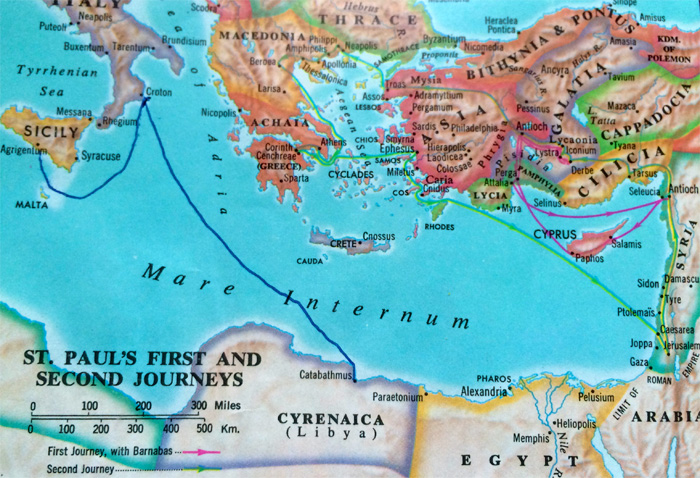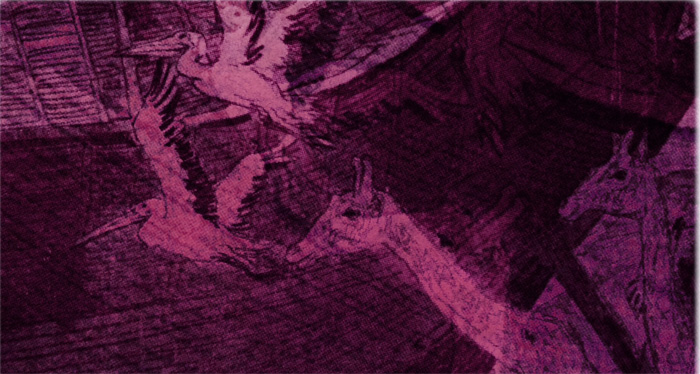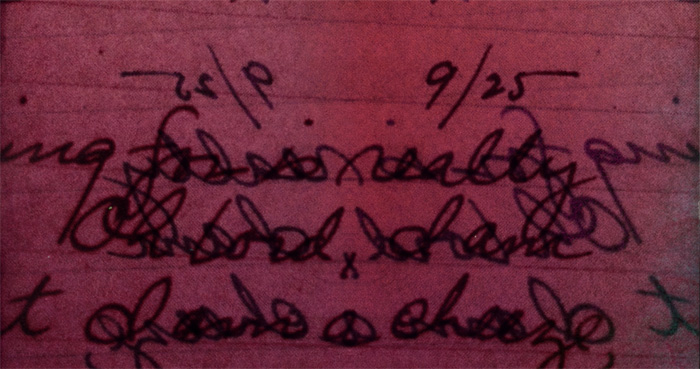The Sweetest Little Supernova
My husband asked me to marry him when we were still in college. He was working at the college’s library in a work-study program. I worked part-time for minimum wage. Both of us were broke, paying tuition with loans we are still paying off nearly 20 years later. We got help from our parents, too. Our dates were mostly walks, rented movies, home cooking, and snuggling until 4:00am. Now, our dates are walks, rented movies, home cooking, and falling asleep at 9:30.
He didn’t have a ring to present to me when he proposed, but I didn’t care. It was almost an afterthought: “Oh. Maybe we should look for an engagement ring?” I knew his financial situation and he knew mine, so there were no grand expectations. We were on the verge of graduating and obtaining jobs that would theoretically pay better, but who wants to start off married life in debt for a chunk of shiny carbon? We’d need to pool our resources to rent an apartment, keep two cars running, pay bills. Eat.
One weekend, he announced he was traveling home and would be back with a surprise. He had been hinting about looking for a ring, but I wasn’t sure how he’d make it happen. Late on a Sunday night, he appeared at my workplace with a small black velvet box. “My sister helped me pick it out!” he said, proudly. I opened the box.
Inside was a gold ring set with a dainty, humble quarter-carat solitaire diamond. Against the black night of the velvet box lining, it was a supernova. He explained he cashed in savings bonds from his grandparents to buy it. I knew the savings bonds weren’t intended to buy a girl he had only dated six months a diamond and suddenly I felt the enormity of his sacrifice. I felt small. I felt like I was holding the crown jewels.
How many men spend nearly every penny they have to buy an engagement ring? 100% of his fortune was inside that box. After he plucked it out and slid it on my finger, I realized we were his fortune. Maybe it was foolish, but it wasn’t as if he didn’t have future prospects. His grand, unexpected gesture showed confidence in our future—and in himself.
When I got pregnant with our first child, my fingers began to swell so I took off the ring and put it on a chain to wear around my neck. It rested on my expanding chest, nearer to my heart in every way. After our daughter was born and I looked less like a balloon animal, I slid the ring back onto my finger. I repeated this ritual with subsequent pregnancies, moving it from finger to heart to finger to heart. It’s never been lost, it’s never been flung, it’s never been a source of regret or embarrassment even at our lowest lows, even on our darkest black velvet nights.
We could upgrade but we haven’t. There’s the kid in braces. Tuition. College soon. We are mindful of these things and mindful we will have to help our kids longer into adulthood than we were helped. It’s just the way it is today. But if one of them comes home and says they are in love with someone good—where are my savings bonds, where is my old piggy bank? I will do my best to help him do it on his own. Cash those in, baby. Your fortune is worth it.
It’s Lovely In Cyrenaica this Time of Year
My late great-grandmother presented a copy of The Children’s Living Bible to me on Christmas, 1979. I don’t especially recall Christmas 1979, so I’m grateful for her handwritten inscription on the title page. She had beautiful, lilting handwriting that leans forward enough the strokes look like a flock of blue birds about to take flight.
“Read and cherish Romans 10: 8-9” the birds sing.
I was still in elementary school and felt outlandishly proud to own a more grown-up Bible than the picture book renditions from early childhood. My new Bible only had a few illustrations, but all of the books, chapters, and verses. It had the crinkly thin paper like my mom’s Bible and colorful maps in the back. I spent a lot of time looking at the maps. One showed the traditional route of the Exodus with a bold pink line. It looped and backtracked and revealed a whole lot of wandering. Another map shows Palestine in the time of Christ. Names like Judea, Samaria, Galilee, Jerusalem, Bethlehem, Jericho, and Jerusalem brought context and history into stories. They were real places.
Recently, I found the Bible and flipped through it to the very last page, which includes two maps. The top map shows St. Paul’s First and Second Journeys, tracing them with a pink line and a green line. I snorted when I noticed my addition. I created a journey in blue ballpoint. I have no idea what I was thinking. Was it something I felt Paul should have undertaken? Was it something I imagined doing myself, a little missionary on fire for the Lord?
I assume my journey began in Catabathmus because it’s closer to base camp Jerusalem, although still quite far. Then, I piloted my ship one long shot across Mare Internum to the ball of Italy’s foot and Croton. When God said my work there was done, hello ship for a short journey to Agrigentum where the Temple of Juno stood. Unlike Paul’s journey, mine doesn’t show me returning to where I began. It’s a one way trip.
I wonder why I didn’t think about bringing myself home?
There is no such thing as a round trip though. There’s no such thing as full circle. Instead, there is a lot of wandering and although you might reach base camp again, this life is nothing but sojourning. At each port, the sea birds change. Some nest on cliffsides, others in ruins, others in squiggles of trees. I see some blue birds rising off the page.
I turn to Romans 10: 8-9 and see my great-grandmother marked an X at the beginning of verse 8 and an X at the end of verse 9. This is where they land:
“For salvation that comes from trusting Christ—which is what we preach—is already within easy reach of each of us; in fact, it is as near as our own hearts and mouths. For if you tell others with your own mouth that Jesus Christ is your Lord, and believe in your own heart that God has raised him from the dead, you will be saved.” Romans 10: 8-9.
Very few are called to embark on a far-flung journey. All of us, however, are called to explore the nearness of our hearts and mouths. You don’t have to be near Jerusalem or a port with wide cove. It’s not something you can trace neatly from point to point to point. For a lot of us, that journey will look like a messy scribble which will ease into a lilting line and eventually set free, aloft.
(map image from The Children’s Living Bible, Tyndale House, 1978.)
Time Wears Stilettos
One of the best things about Steel Magnolias is every other line is quotable. Lately, I’ve been dwelling on this line, delivered by sweetly sassy Truvy:
Honey, time marches on and eventually you realize it is marchin’ across your face.
Last night, I was staring at myself in the mirror. I have a deep line next to my left eyebrow that betrays inherent skeptimism and questioning nature. I must be skeptical and confused a lot because when time stomps across my face, it trips a little before making a recovery. Time looks around sheepishly to see if anyone noticed. Time should have been paying attention, but Time was texting Memory the grocery list. Again.
Not only am I perma-skeptical, I’m rapidly greying. I’ve had strands of white-grey since age 16. My mom found them, squealing and cackling like she found a diamond ring in a Happy Meal. I didn’t believe her, so she yanked them out to show me. There were four. It was kind of mean, but now as a mom I think she was so gobsmacked at finding grey hair on her child that her brain went a bit haywire. What greater evidence of your own advancing age is there than evidence of the advancing age of someone you used to wipe multiple times a day?
I’m reminded of that when I look at one of my son’s faces. He has a thin strangely-black mustache I mistook as dirt the first time I saw it. Luckily, it seems to fall out on its own and regrow. The little hairs haven’t found their anchors yet, but when they do it will be time for razors and shaving creams that smell manly. The first time I hug him after his first real shave, I might go a bit haywire, too.
Time—as we understand it—is always in motion, always creating waves of change, growth, catalyzing decay. While Time marches across our faces, it goes off-roading into our hair, turning it white, thickening, and sometimes harvesting in the case of men.
I rake my splayed hands through my hair. Strands drape between fingers and around my palms. I shake them off into the trash and my skeptimistic forehead wrinkle deepens. Sometimes, I look at lost hair and think about the math God is constantly spinning out to us. I remember my mom hunched over the bathtub in my childhood home, washing my hair with apricot-scented shampoo. She told me God knows how many hairs are on my head. I wondered why He would care about that. But it would be cool to know, if He were around to ask. Real quick, God, how many hairs are on my head?
He wouldn’t have to stop to think. He could just tell me and also tell me what happened to the dinosaurs. What did Time do to them? How many stars are in the sky? How many ladybugs in forests? How many bubbles have there been? How many angels? How many chocolate chips? How many demons? When is Jesus coming back? How many feathers? Did Adam and Eve have belly buttons? How did Noah?
Why do horrific things happen to good people? What was the last miracle you did? Oh, this. Right here, right now?
Maybe, if that had happened, my forehead line wouldn’t be so deep.
The Prayers of a Sharp Cheddar
“What I am asking for is really very ridiculous. Oh Lord, I am saying, at present I am a cheese, make me a mystic, immediately. But then God can do that—make mystics out of cheeses.” Flannery O’Connor, A Prayer Journal, September 25, 1947.
One of the greatest literary minds of all time called herself a cheese. Throughout her journal, the devoutly Catholic O’Connor struggled with questions of faith, writing, her place, and her prayer life. As I read her journal, I was constantly struck by her alternating lack of confidence in her ability and her overwhelming confidence God was going to use her gifts for his glory. Somehow.
But she was a cheese and if she is a cheese, so am I. I might be less than a cheese. I might be a processed cheese food, aerosol can-based, with smoky bacon flavor.
There’s a longing to escape from the mundane and banal of everyday life, but what better place to meet your savior? God turns poverty of spirit into something beautiful and eternal. It’s his business to redeem and it’s a free gift through his son. The lame walk, the tongue-tied talk, a child shall lead them, a fishermen catches men—greatness is never the starting point. In fact, it’s quite the opposite. Brought low like a Velveeta block or old sippy cup milk curd, cheese is basic.
While Flannery O’Connor, the Cheese, wrote about her wish to be a mystic, I have a different outlook. My cheesehood is more concerned with daily living. I pray for wisdom and patience, faith when doubts creep, strength when I’m weak. Anything mystic that happens is a complete surprise, like gold flakes sprinkled into Stilton but served on a saltine.
O’Connor eventually wrote some of the starkest, smartest, thunderously prophetic and convicting novels and short stories of the 20th century. When you read her prayer journal knowing what she would accomplish in coming years, it’s a revelation—until you come to the very next day and the last entry she wrote:
My thoughts are so far away from God. He might as well not have made me. And the feeling I egg up writing here lasts approximately a half hour and seems a sham. I don’t want any of this artificial superficial feeling stimulated by the choir. Today I have proved myself a glutton—for Scotch oatmeal cookie and erotic thought. There is nothing left to say of me. Flannery O’Connor, A Prayer Journal, September 26, 1947.
And then, suddenly, on the day she closed this particular journal forever, I see myself. It’s not that I wish I was never made but I can sink easily into oblivious mode, only praying over a meal or a good parking space. My lofty, in the zone spiritual reveries last about as long as hers and then someone needs to be wiped. I succumb to various gluttonies and figure that’s it. I blew it again. I know what happened to her, however. I have no idea what’s in store for me, so the biggest thing I can be is basic: a cheese in my poverty as I wait on Him.
~~~~~~
I recommend Flannery O’Connor’s A Prayer Journal, published by Farrar, Strauss and Giroux, New York, 2013. It’s a short, fast read that includes the full text of her journal transcribed and a full version of her photocopied handwriting. I don’t recommend it because she’s such a spiritual sage (although some of her journaling is lovely), but as a glimpse into who she was in her fledgling writing days.
Hey Eeyore, I Think of Your Mother
You had one, right? Someone cut your cloth into odd oblongs. Someone assembled the pieces and drove straight pins through to hold them together. She chose a new needle that was thick and sharp. She wet and twisted the scraggly end of grey thread in her mouth, making a stiff point to plunge through the needle’s eye. One strand, doubled over is doubly strong. She pulled until the ends matched and looped them into a tangle large enough to plug your cloth.
Then she sewed and along the way removed the crude stiff pins, placing them back in a little box as she went.
Every time she ran out of thread, she’d hold you up to the light and examine progress. You were coming along! She put her hand down one leg, then the next, then another, then the last. They were even, tight, and true. She kissed your wide flat face while laughing. It was already cute, but just wait until she got to the stuffing and added the shiny black button eyes she clipped off a coat she used to wear. She got the idea of adding tufts of soft black yarn around your ears when she pulled them out and joked to herself if ears were wings, you’d soar like an elephant. Balance. A bit of style.
There had never been a little donkey like you and there would never be another donkey like you even if she used the same pattern. Her hands would be older. Her favorite chair might be in the same spot by the window overlooking the hills, but light would bend differently through taller trees and changing seasons.
You were stuffed with fluff just like your friends, through a little slit that is easy to find if you know where to look. You were finished with those button eyes, ear tufts, and an afterthought of a tail.
Maybe that’s why? Could it be?
She doesn’t know why you like to live by the thistles. They bloom for a short time with bright lavender petals and leave delicate feathery seeds behind, but you notice the thorns. When they are in bloom, she turns your head and says look at them, just look at them, have you ever seen a color like that? 
Brown? You say.
Everyone pulls you along on adventures. They fight for you and launch expeditions for you. They like you. They love you. But it’s not enough to lift your head sometimes.
She thinks maybe it’s too heavy. You can’t lift it because you simply. Can’t.
And then she gets angry. You could lift your head. You just won’t.
She knows that was stupid and unhelpful because she’s had a heavy head, too. It’s what allowed her to hunch and squint and quiet herself long enough to form somethings out of nothings. But she sees brown and purple together and is so thankful for that combination because one without the other is less than zero when it comes to thistles.
She watches you closely and carefully, reveling in your moments of happiness but accepting that some are sewn sad. She pulls you close and promises she will go beyond the borders of everywhere to help you.





